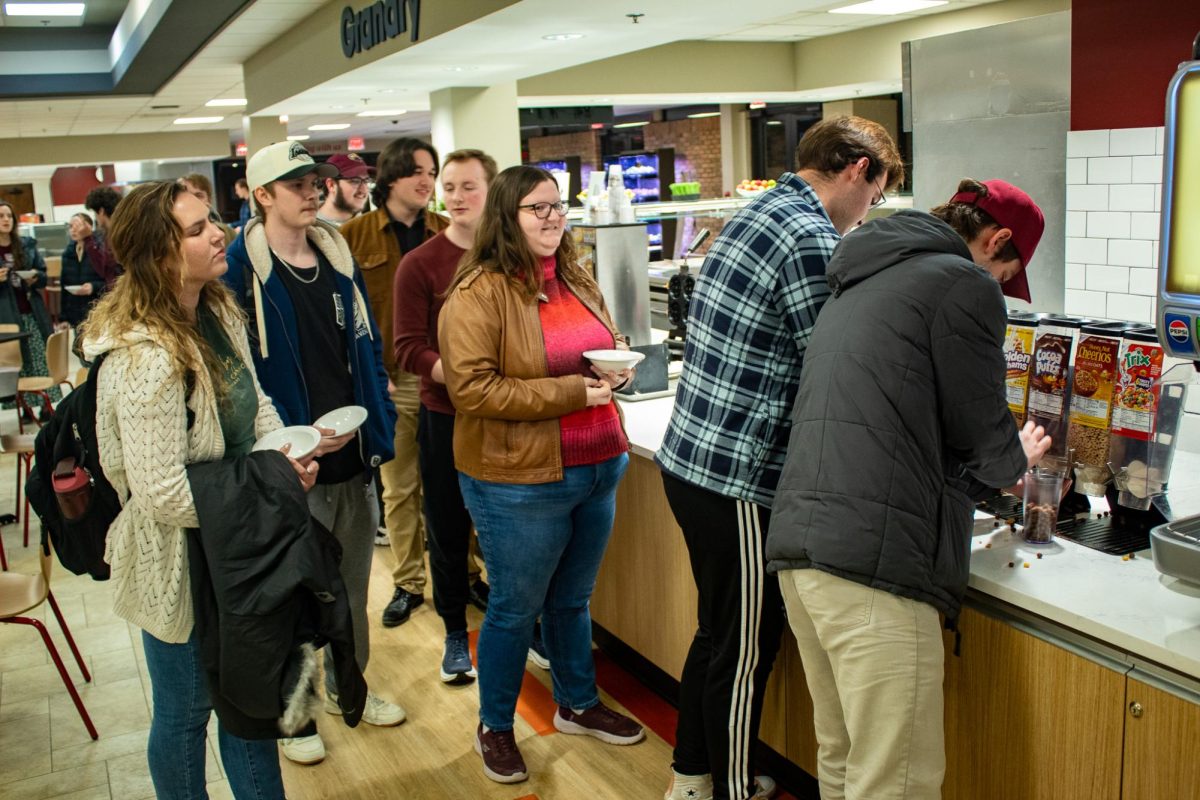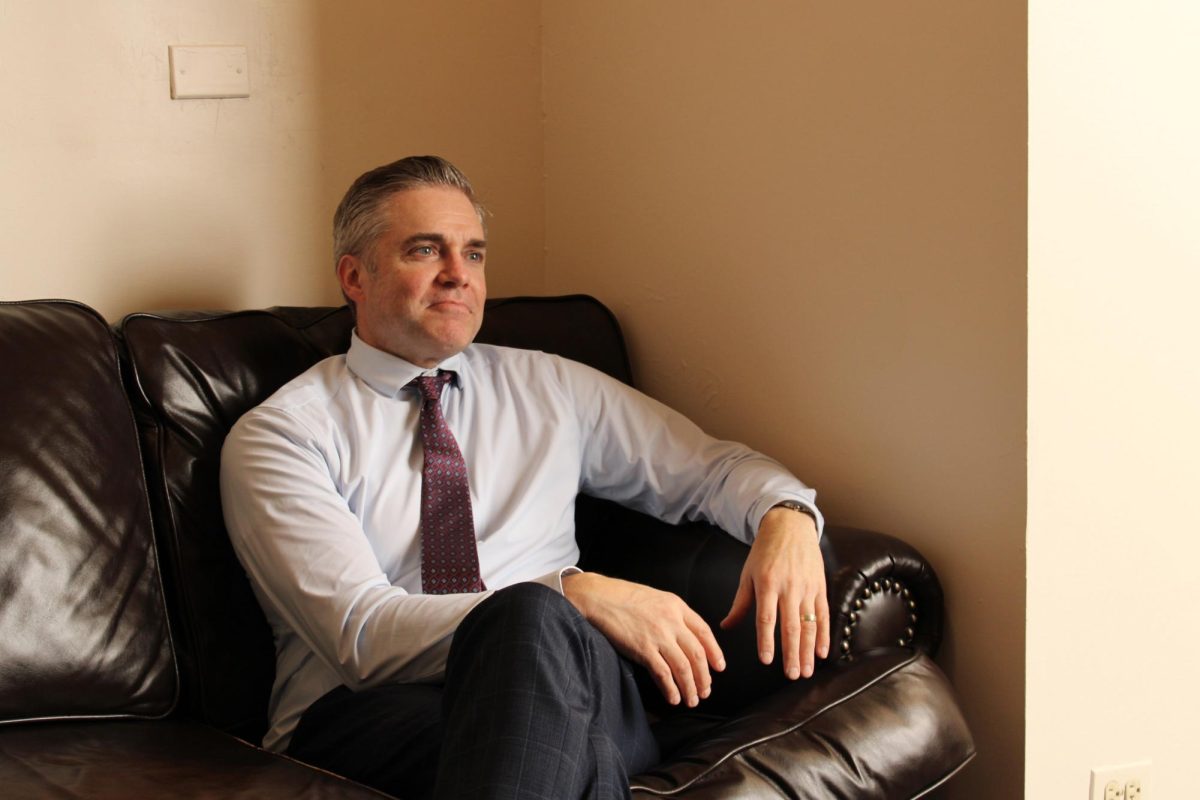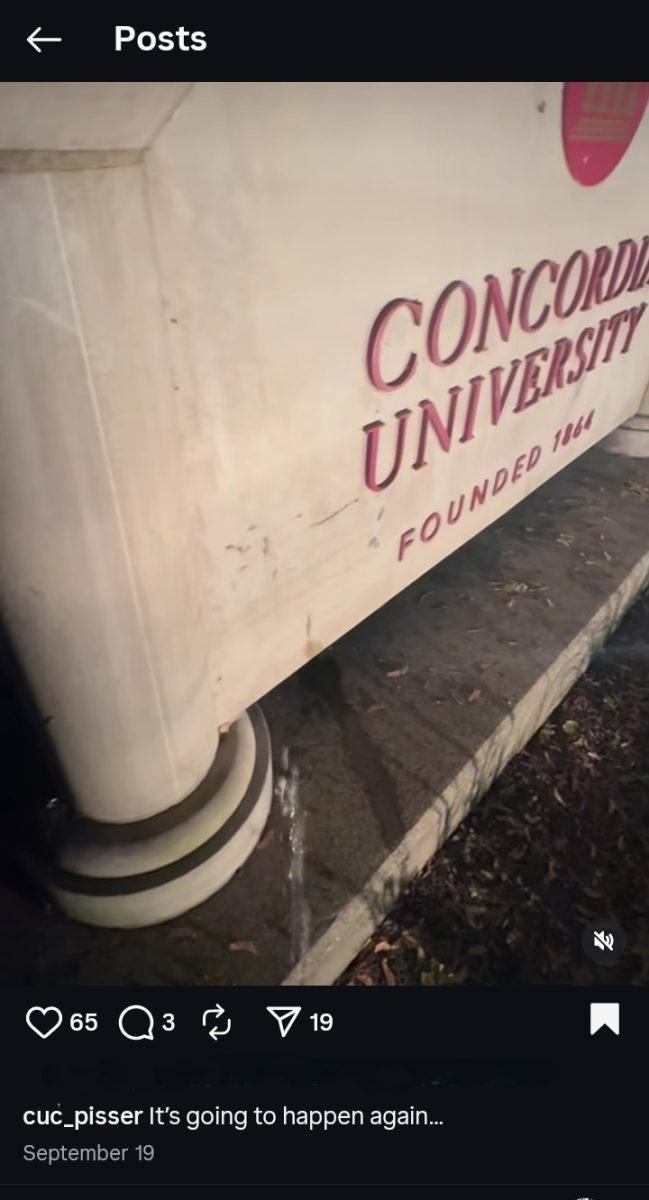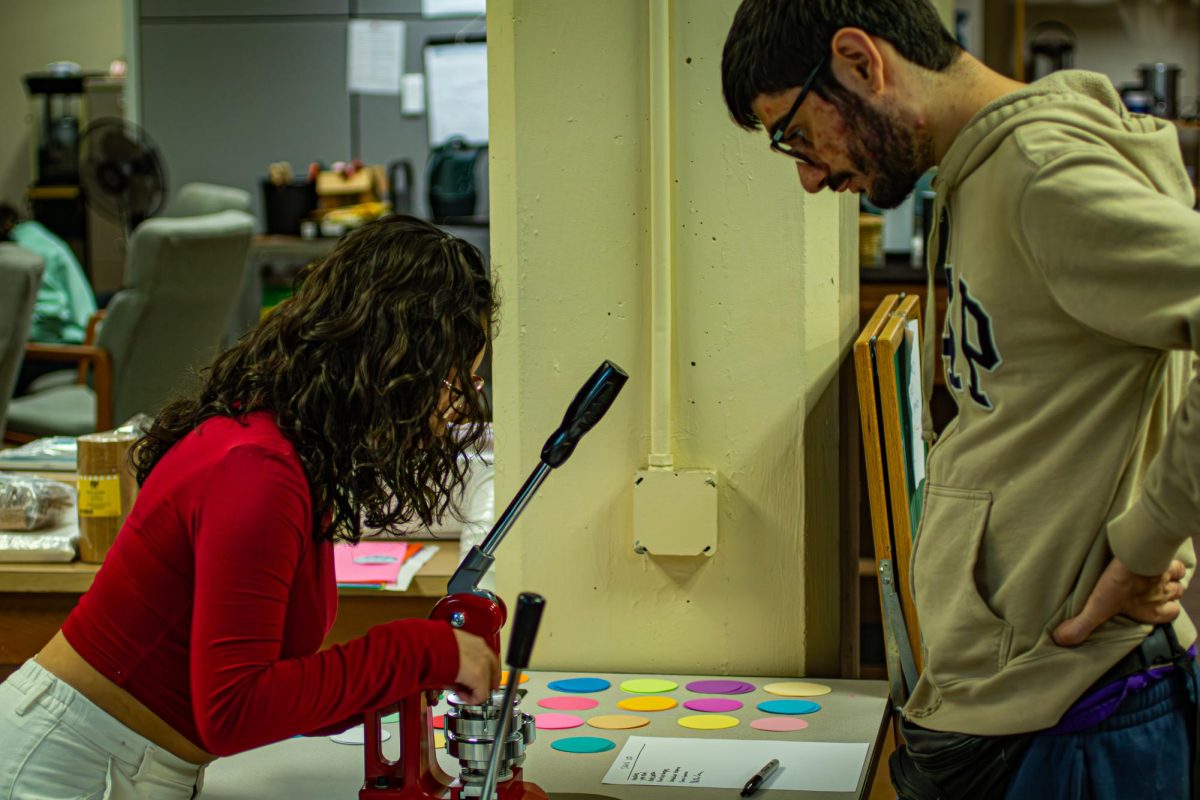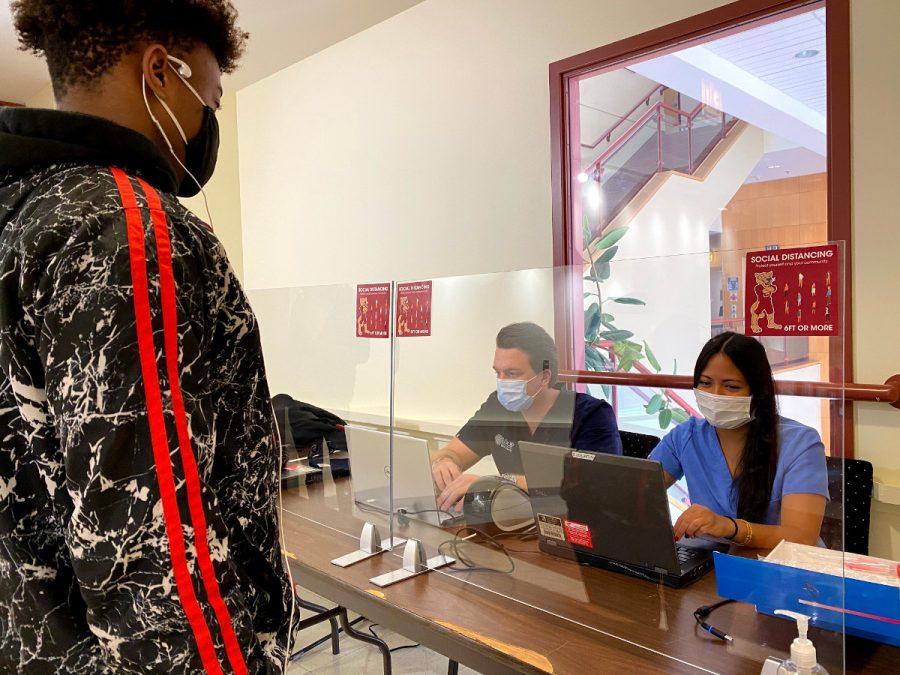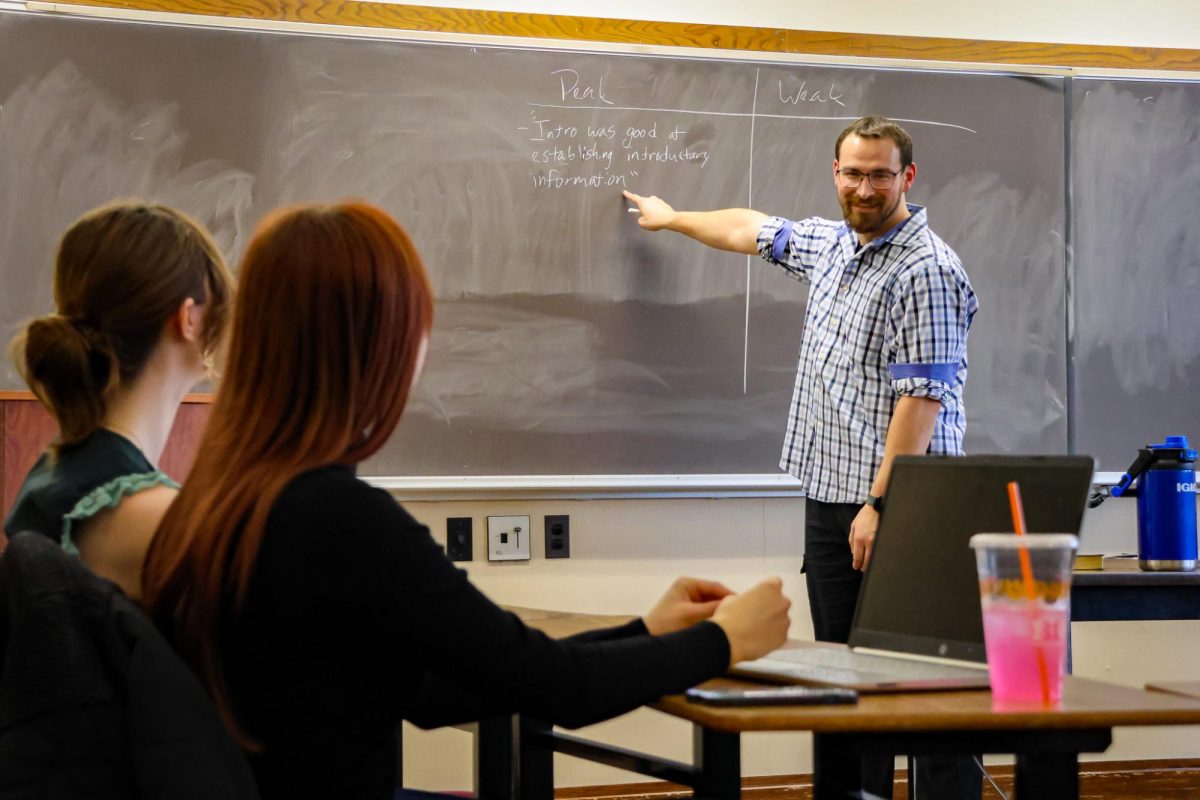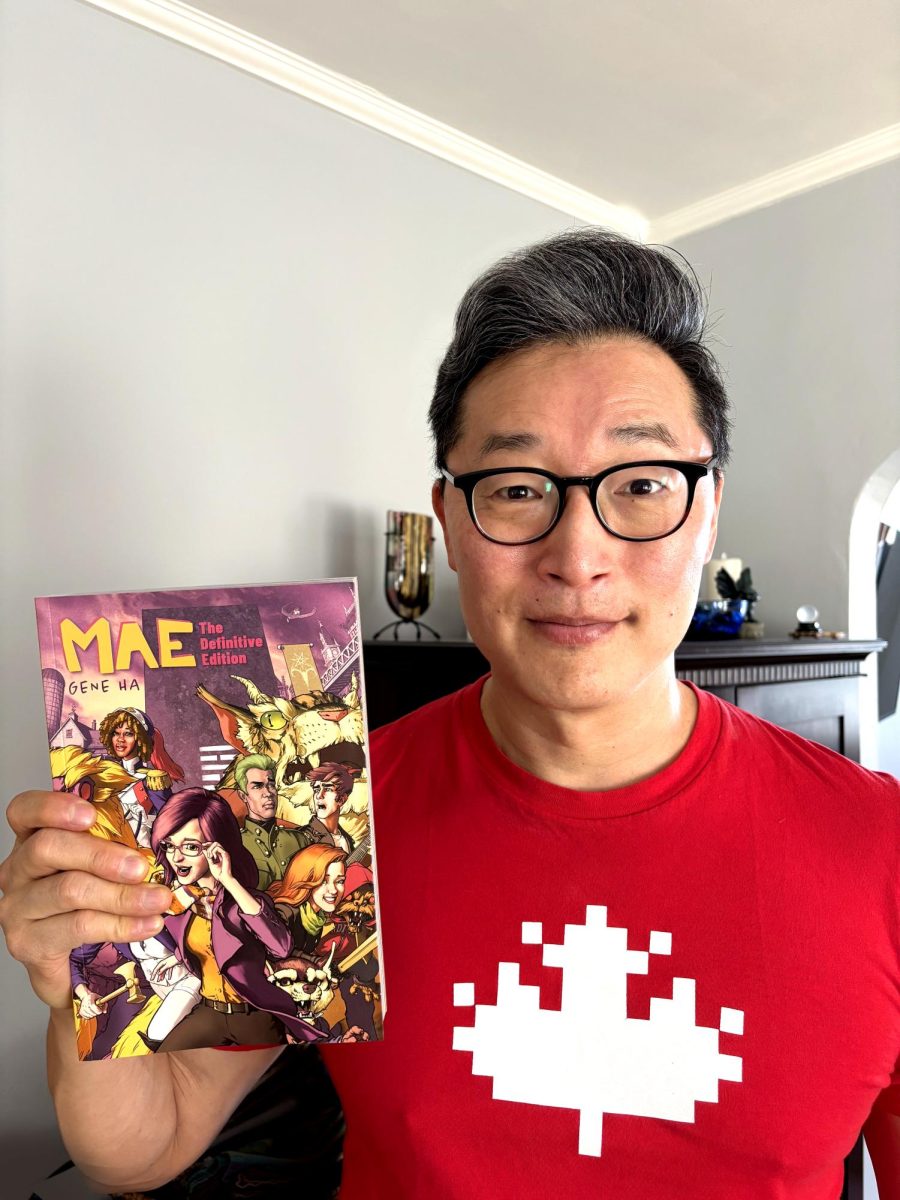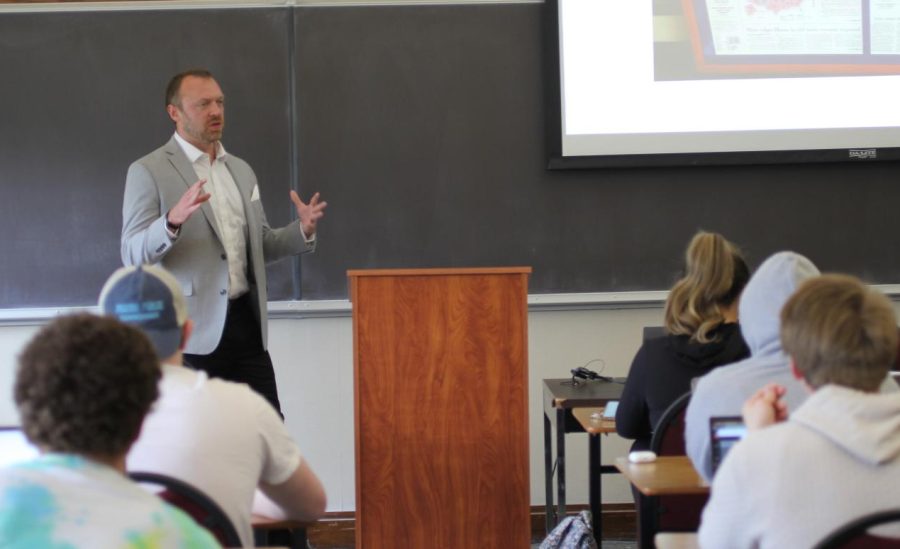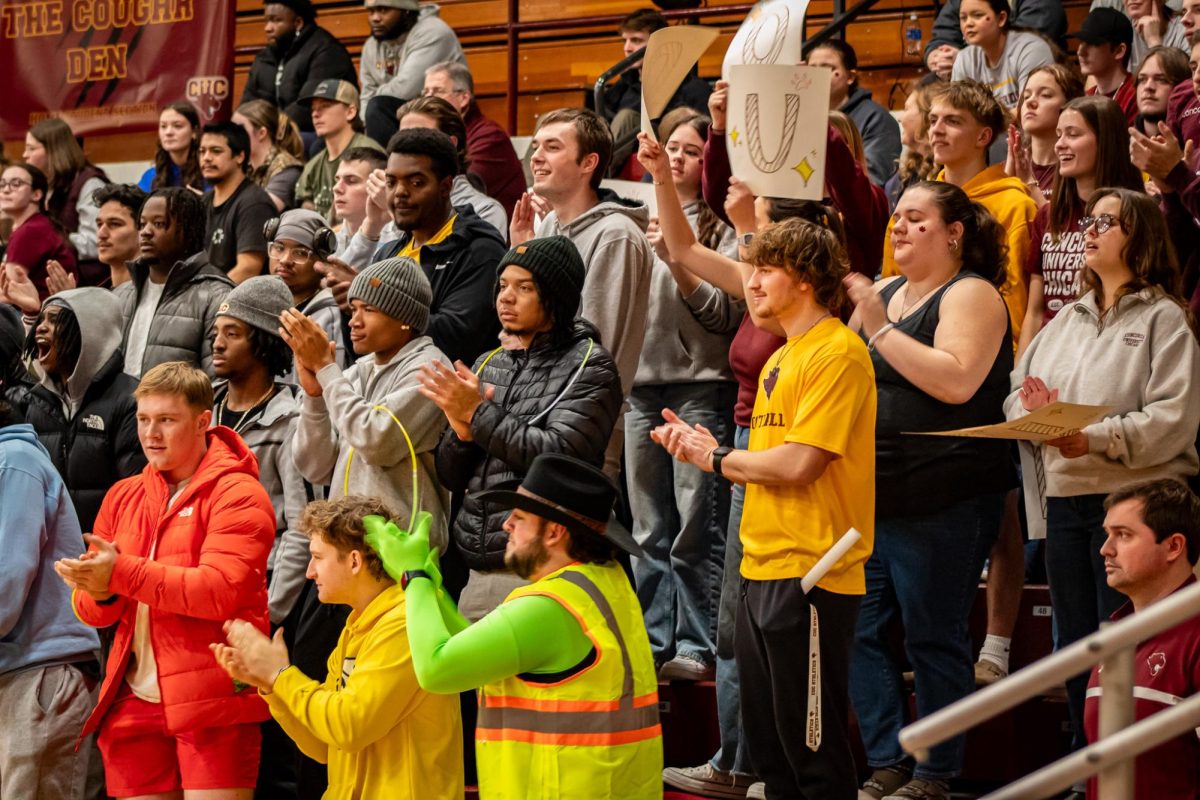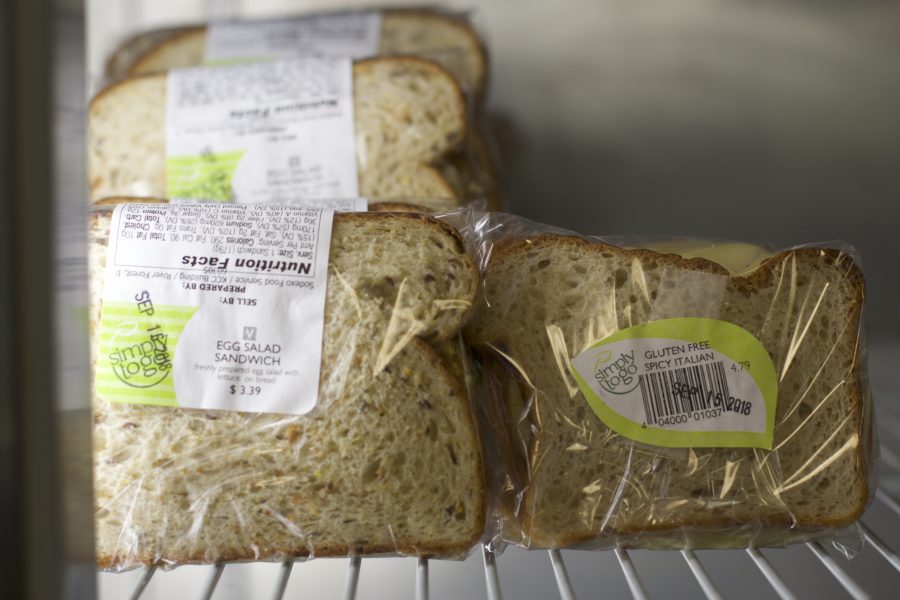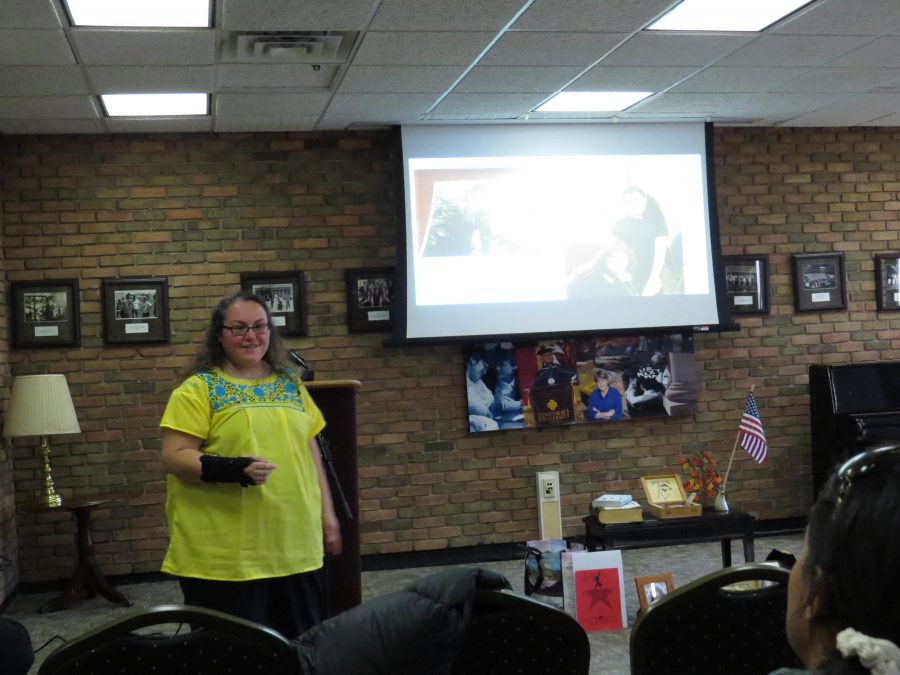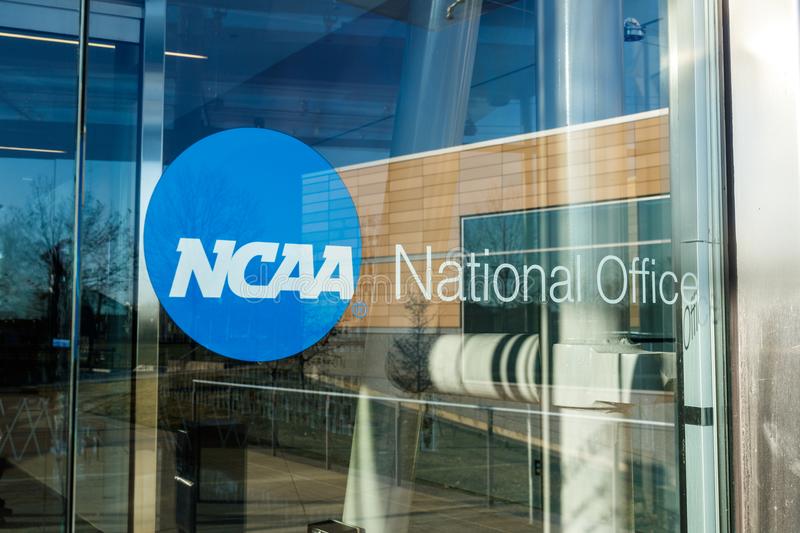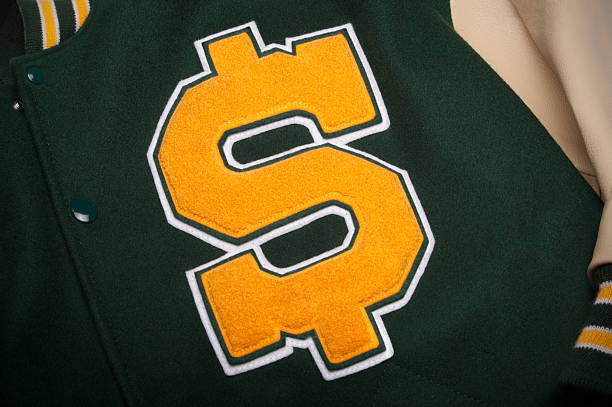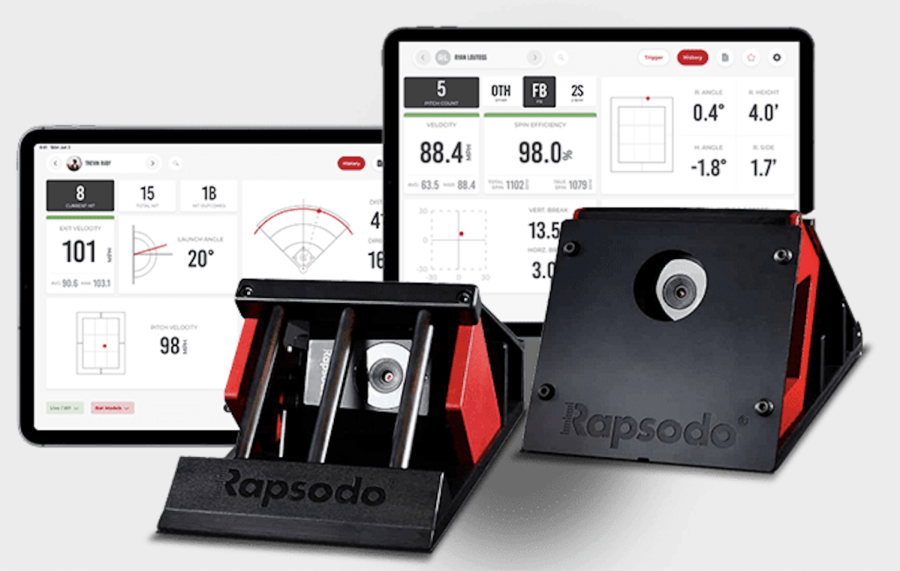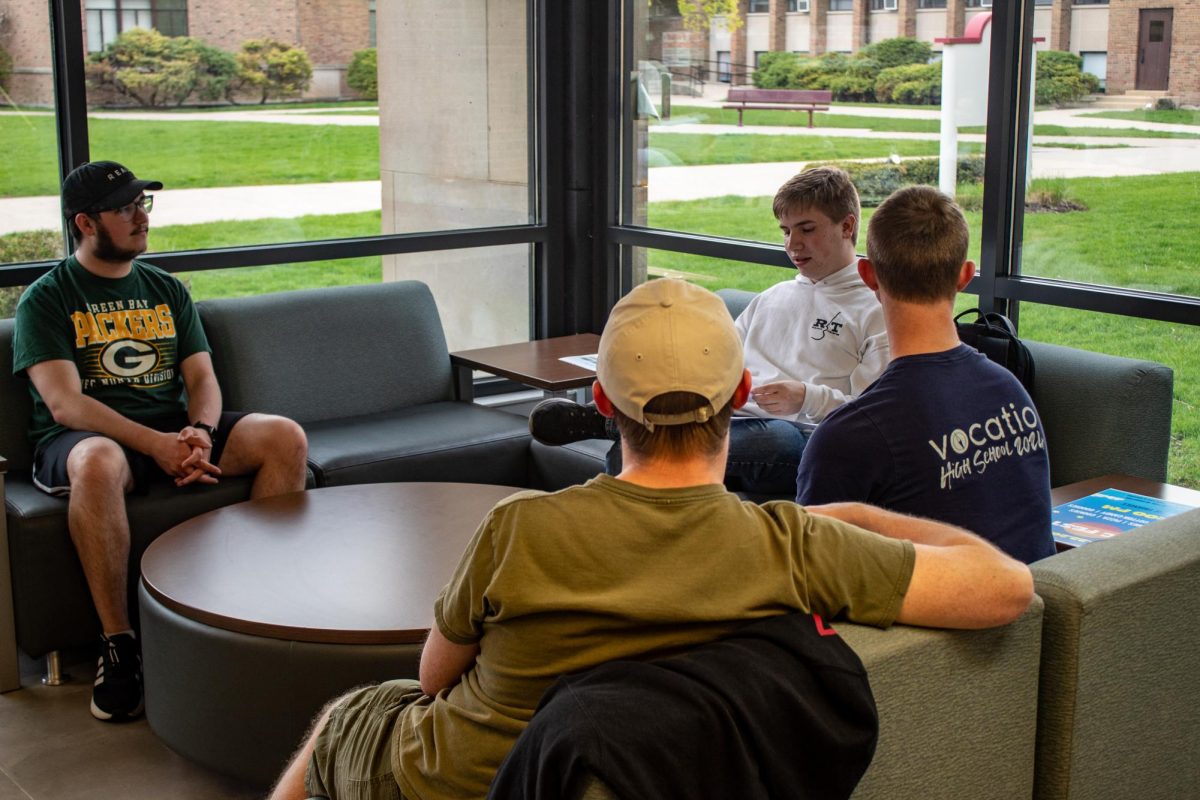CEO and founder of The Pop Up retail stores, Stephen Brooks, brought life to a lecture hall on a Thursday evening on the Sept. 21st at Concordia University Chicago. What can sometimes be a drowsy and tiresome end to a long day for students became animated with an English sounding accent on why retail is still alive. Malls may be a dying community, but the retail industry is not and Brooks explains that retail is still alive in a variety of ways.
Originally from London, Brooks grew up with two very important people in his life, his mother and his father. At age 22, Brooks decided to take a plane to Scotland to purchase Retail Location. As the day grew long, Brooks realized he was going to miss an important meal with his family. Brooks called his mother to tell her he was in Scotland buying the business, Retail Location. Brooks’ mother responded with, “Who are you to be buying a company?”
These words resonate with Brooks to this very day because it made him stop and think about why he was doing what he did at the time. It motivated him to make a business out of turning around retail.
Brooks credited his success in part to Sally Beach, describing her as the other “twenty-five percent of what we do.” Brooks said Beach helped him launch the business in the US, for which he is very thankful.
Brooks explained why many retail companies have disappeared in the last decade. Brooks gave Blockbuster as an example, comparing it to what people are using now such as Netflix. Brooks points out the one noticeable difference Blockbuster killed themselves with; not moving forward with the industry of renting out movies. He also spoke on how Uber disrupted the taxi industry, while Apple revolutionized the music industry.
The last 35 years for Brooks has been working with the retail industry such as T-Mobile and Virgin Media. He teaches these businesses how to better themselves for their consumers who walk through the door everyday.
“Technology itself is not the real disrupter, being non customer – centric is the biggest threat to any business,” said Brooks.
Customer – centric are two words that resonates with Brooks and has an impact on the retail industry. Amazon, an example used by Brooks, is customer – centric. Consumers can buy anything from books, dishwashing soaps, or food with Amazon with the click of a button or voice command, and have it delivered in either two hours or two days. This offers a quick, interactive customer experience.
In 1967, malls were “changing the face of retail,” Brooks said, “because consumers could buy their favorite brands under one roof.” During this time, Brooks states that consumers were more than likely shopping locally, based on value, and off customer experience. Because of these factors, retailers knew who their consumers were and what they were going to buy at that store.
To this day Brooks said, “the shopping patent hasn’t changed that much.” Consumers still shop based off of value, still shop locally, and still shop based off customer service, Brooks said. An added bonus is that now consumers shop online and they shop 24/7 because it’s available to consumers. With online shopping comes online data. This gives “smart stores” as Brooks calls it, the ability to see where people ship to and other data necessities, an advantage point for many stores.
What’s the answer to whether or not retail dies? Brooks states that, 78 percent of people want to “touch, feel, and engage with a product before buying.” This is an opportunity for retailers to interact with consumers, Brooks said. Sixty-four percent of people will return to the store and buy again, if they felt that they received “great customer service.” These are just a few things that keep retail stores alive when they bring it to the storefront, he said.
Penny Power is an author mentioned by Brooks who writes about niche marketing and the impact on how people do business. The book teaches retailers to be ready for questions brought up by customers and how to be an expert in your field of retail. Offering customer service is important and niche marketing is one step closer to being better at it, he said.
Competing with other people in a struggling mall business these days is difficult. That is where Brooks introduces pop up stores or stores that stand alone. Selling your product with no wall-to-wall neighbors allows people to make easier decisions and not to walk out to compare prices at maybe another store.
From the Q&A talk at the end of the speaking event, information on pop up stores as to why they are successful shed some light on the process of it all. One question from the audience asked why pop up stores are doing so well in the UK compared to the US. Pop up stores have been thriving in the UK, according to Brooks because they are “more dedicated to taking a risk on something new.” The process for doing a pop up store in the US is much more complicated than the UK, said Brooks. The UK requires “two sheets of paper” and the US is filling out paperwork before receiving the price on the location that is desired.
“Test before you invest,” is good advice for pop up stores, according to Brooks. Testing your products for 16-18 weeks is a proper amount of time to see if the business is doing well, Brooks said. This establishes your confidence with consumers and allows them to see if they come back. This is also a good amount of time to see if you want to turn around a business or expand on a business. “Entrepreneurial life is about taking a risk,” said Brooks.
When you hear “pop up” stores, shops, retailing, or anything that comes after “pop up” think of Stephen Brooks.
If you want to learn more about Stephen Brooks and his “7 Secrets to Success” check out his website https://www.thepopupexpert.com/. Connect with Stephen Brooks on twitter @StephenABrooks, Instagram @stephenabrooks, or LinkedIn https://www.linkedin.com/in/stephenabrooks1/?trk=hp-identity-name to learn more about the pop up expert.

